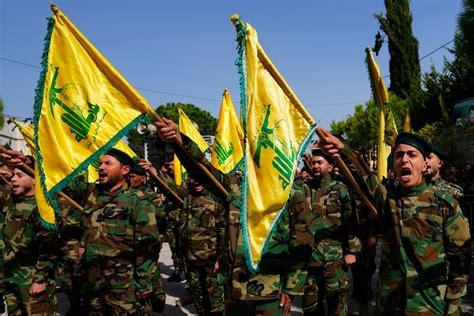
Hezbollah ‘still stronger than several Lebanese armies,’ expert warns
Lebanon has reached its “moment of truth,” according to Dr. Moshe Elad, an expert on Lebanon and lecturer at Western Galilee College in Acre. It is torn between hope for national reconstruction and fear of Hezbollah’s forces erupting again, he told Maariv.
Elad, a colonel in the IDF reserves, oversaw the Tyre and Bint Jbeil regions in the security zone during his military service.
“For the first time since Hezbollah’s establishment, the organization that seized Lebanon and turned it into a ‘terrorist group with its own state,’ there are ‘Ben-Gurion-like’ attempts to create a regime in Lebanon with one government, one constitution, and one weapon,” he said. “It won’t be easy, and there are great doubts about whether this will succeed.”
Hezbollah remains a major force in Lebanon, Elad said.
“Despite the severe blow Hezbollah suffered from Israel, the organization is still stronger than several Lebanese armies,” he said. “Everything depends on it. If Hezbollah wants, it could stage a government coup and reclaim control. If it desires, millions of Shi’ites will obey it, seeing the organization as their ultimate source of belonging.”
Hezbollah is not taking action now, Elad said, because it “isn’t afraid of the Lebanese government, even with the backing of the United States and Europe, which seek to revive Beirut as ‘the Paris of the Middle East.’ It doesn’t regard the new government under President Michel Aoun, Prime Minister Najib Mikati, or Chief of Staff Joseph Aoun. It simply yields to public opinion, to the common citizen who requested and even begged for a chance for the new government to rebuild the country.”
“The Lebanese citizens have forgotten what it means to have running water, continuous electricity, clean streets, or a currency that holds any value,” he said. “Hezbollah allows the new government to act toward Lebanon’s reconstruction and does not intervene. From time to time, Hezbollah leaders make threats, but when it comes to actual confrontation with the government, or attempts to impose arrangements or even retaliation against Israel following the elimination of senior figures, there is total compliance.”
Regarding critics of Hezbollah’s de facto leader, Naim Qassem, Elad said: “Some wanted to provoke Naim Qassem, ‘the sweeper,’ Hezbollah’s effective leader, and depict him as a poodle-like lapdog following the orders of his new masters. We shouldn’t be mistaken. When President Aoun demanded that Hezbollah disarm, the organization drew a line and declared: ‘This is enough.’”
“As long as Israel occupies five strategic points in Lebanon, as long as the Israeli threat remains, and until the territorial issues with Israel are resolved, Hezbollah will hold on to its weapons,” he said.
Lebanese government’s attempt at a compromise with Hezbollah
“Various leaders, including moderate Shi’ites, suggested a compromise,” Elad said. “Hezbollah would store its weapons in Lebanese Army warehouses and would not have access to these stores as long as the country heads toward a security, economic, and social overhaul.”
“Hezbollah is not eager to give up its missiles and weapons,” he said. “If it does, it would be a significant development that could pave the way for other terrorist organizations to seek to transform into political entities, such as Hamas, the Turkish PKK, and other terrorist groups worldwide.”





